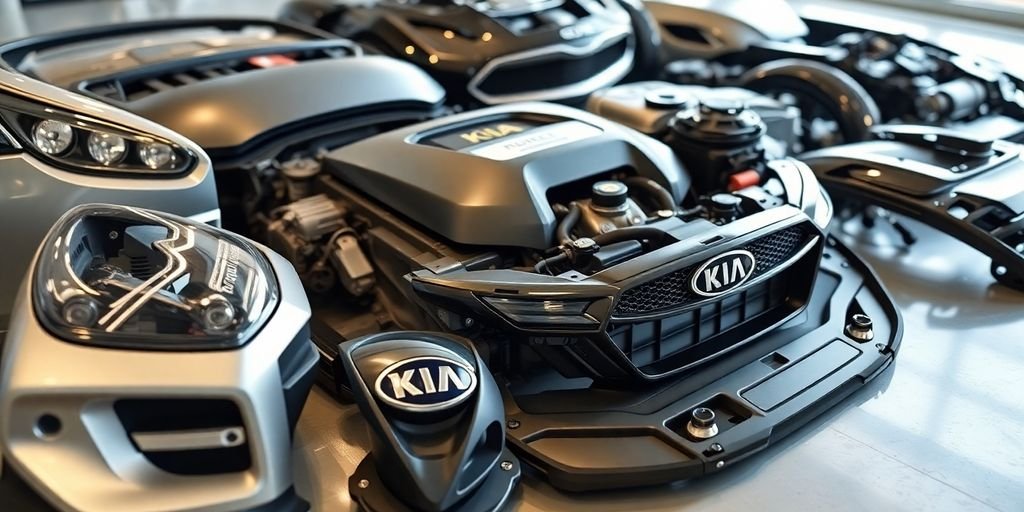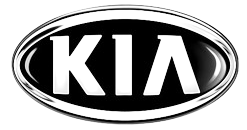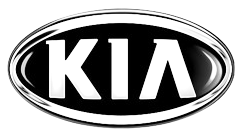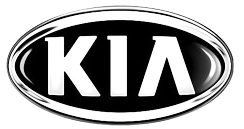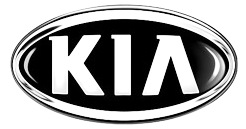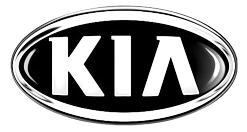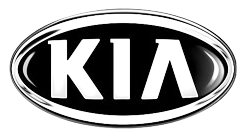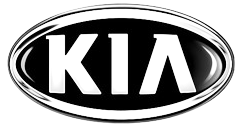Finding the right place to get Kia spare parts can feel like a puzzle. You want parts that fit your car perfectly, don’t cost a fortune, and arrive when you need them. Whether you’re looking for original parts straight from the manufacturer or good quality aftermarket options, knowing where to look and what to look for makes all the difference. Let’s break down how to find a reliable Kia spare parts supplier.
Key Takeaways
- When looking for a Kia spare parts supplier, consider both Original Equipment Manufacturer (OEM) and aftermarket options to balance cost and quality.
- A good supplier should have knowledgeable staff, fast shipping, and clear return policies to ensure a smooth buying experience.
- Genuine Kia parts come directly from the manufacturer and guarantee a perfect fit and performance, though they often cost more.
- Aftermarket Kia parts can offer significant cost savings and sometimes even performance upgrades, but quality can vary widely.
- Checking customer reviews and comparing prices across different suppliers will help you find the best Kia spare parts supplier for your needs.
Finding Your Ideal Kia Spare Parts Supplier
Understanding OEM vs. Aftermarket Kia Parts
When your Kia needs a new part, you’ve got two main roads to go down: Original Equipment Manufacturer (OEM) or aftermarket. OEM parts are made by Kia or a company specifically contracted by Kia. Think of them as the same parts your car came with from the factory. They’re designed to fit perfectly and work just like the original. On the other hand, aftermarket parts are made by other companies. These companies aren’t directly affiliated with Kia, but they make parts that fit Kia vehicles. They can be a good option, especially if you’re looking to save some money.
Here’s a quick look at how they generally stack up:
| Feature | OEM Kia Parts | Aftermarket Kia Parts |
|---|---|---|
| Origin | Made by Kia or Kia’s direct suppliers | Made by independent auto parts manufacturers |
| Fit & Finish | Designed specifically for your Kia model | Designed to fit various makes/models, including Kia |
| Price | Typically more expensive | Often more affordable |
| Warranty | Usually comes with a manufacturer’s warranty | Varies by manufacturer; check before buying |
Choosing between OEM and aftermarket often comes down to what you prioritize: guaranteed factory fit and feel, or potential cost savings and maybe even performance upgrades. It’s not always a clear-cut decision, and sometimes a high-quality aftermarket part is just as good, if not better, for certain applications.
Key Features of a Reliable Kia Parts Supplier
Finding a good place to buy Kia parts means looking for a few key things. First off, they should have a good selection. If you drive a common Kia model, you’d expect them to have most common parts in stock. It’s also important that they can help you find the exact part for your specific car. Using your car’s Vehicle Identification Number (VIN) is a big help here, as it takes the guesswork out of finding the right fit. A supplier that makes this easy is usually a good sign.
Good customer service is another big one. Can you easily get in touch with them if you have a question? Do they seem knowledgeable about Kia parts? A supplier that offers quick responses and helpful advice makes the whole process much smoother. Also, think about their shipping and return policies. Fast shipping means you get your car fixed sooner, and a fair return policy means you’re not stuck with a part that doesn’t work or isn’t right.
Navigating Online Kia Parts Catalogs
Shopping for Kia parts online can be super convenient, but you need to know how to use the catalogs effectively. Most good sites will let you search by your Kia’s year, make, and model. Some even let you search by VIN, which is the most accurate way to make sure you’re getting the right component. You’ll often see diagrams or exploded views of different car systems, which can be really helpful for identifying the exact part you need. Pay attention to part numbers if you have them – they’re the most precise way to search.
Don’t just grab the first thing you see. Compare prices from different suppliers if you can. Look at the product descriptions carefully; they should tell you if the part is OEM or aftermarket, and what specific Kia models it fits. If a website seems hard to use or doesn’t provide much detail about the parts, it might be best to look elsewhere. A well-organized catalog with clear information is a sign of a professional and reliable supplier.
Sourcing Genuine Kia Spare Parts

Benefits of Purchasing Original Equipment Manufacturer Parts
When your Kia needs a new part, sticking with Original Equipment Manufacturer (OEM) parts is often the best bet. These are the exact same parts that your car was built with at the factory. This means they’re designed specifically for your Kia model, fitting perfectly and working just as the original did. Using OEM parts helps maintain your Kia’s original performance and can prevent future issues that might arise from using parts that aren’t quite right. While they might cost a bit more upfront than aftermarket options, the peace of mind and guaranteed compatibility are usually worth it, especially for critical components like engine parts or braking systems. It’s like getting a direct replacement from the source, keeping your Kia as close to its factory condition as possible.
Authorized Kia Parts Distributors
Finding a reliable place to buy genuine Kia parts is key. Authorized Kia parts distributors are dealerships or online retailers that have a direct relationship with Kia. This means they get their parts straight from the manufacturer, so you know you’re getting the real deal. Shopping with an authorized distributor gives you confidence that the parts are authentic and meet Kia’s quality standards. They often have extensive catalogs covering all Kia models, from the latest SUVs to older sedans. Plus, these places usually have staff who know Kia vehicles inside and out, ready to help you find the exact part you need. It’s a good way to avoid counterfeit or low-quality parts that could harm your car.
Ensuring Authenticity of Kia Spare Parts
It’s not always easy to tell if a Kia part is truly genuine. Counterfeit parts are out there, and they can look very similar to the real thing. To make sure you’re getting authentic Kia parts, always buy from authorized dealers or reputable online stores that specialize in OEM parts. Look for proper packaging with Kia branding and part numbers. If a price seems too good to be true, it probably is. A good indicator of authenticity is the seller’s commitment to providing genuine parts and their willingness to answer questions about the origin of their inventory. Some online stores even let you search by your car’s VIN (Vehicle Identification Number) to guarantee you get the correct, genuine part for your specific Kia.
Buying genuine Kia parts means you’re investing in the longevity and proper function of your vehicle. It’s about getting parts that are made to the exact specifications of your car, ensuring everything works together as intended.
Exploring Aftermarket Kia Parts Options

When your Kia needs a new part, you’ve got choices beyond just the dealership. Aftermarket parts are made by companies other than Kia, and they can be a smart way to save some money. These parts are often significantly cheaper than genuine OEM parts, sometimes by 30-50% or even more. This cost difference can really add up, especially if you’re doing a lot of repairs or maintenance.
It’s not just about saving cash, though. Many aftermarket companies focus on making parts that are just as good, if not better, than what came from the factory. They might use different materials or designs that could make the part last longer or perform a bit differently. Some folks even use aftermarket parts to give their Kia a little boost, like a high-flow air filter that could help with engine breathing.
When you’re looking at aftermarket options, it’s a good idea to do a little digging. See who makes the part and what others have said about it. Sometimes, a slightly different design can actually be an improvement over the original.
Here’s a quick look at what you might find:
| Part Type | Potential Savings | Notes |
|---|---|---|
| Brakes | 20-40% | Look for reputable brands. |
| Filters | 30-50% | Often very similar to OEM quality. |
| Lighting | 25-45% | Wide range of styles and quality levels. |
| Suspension Parts | 20-35% | Check reviews for durability. |
So, while OEM parts are always a safe bet, don’t count out the aftermarket. With a little research, you can find quality parts that fit your budget and keep your Kia running smoothly.
Evaluating Kia Spare Parts Suppliers
When you need a part for your Kia, picking the right place to buy it from matters. It’s not just about getting the part; it’s about getting the right part, at a fair price, and having a decent experience doing it. So, how do you figure out who’s good and who’s not?
Customer Service and Expertise
Think about who you’re talking to when you have a question. Are they helpful? Do they seem to know what they’re talking about when it comes to Kia parts? A supplier with knowledgeable staff can save you a lot of headaches. They can help you pinpoint the exact part you need, especially if your Kia is a bit older or has a specific trim level. Good customer service means they’re there to help you, not just make a sale.
Shipping Speed and Return Policies
Nobody wants to wait around forever for a car part. Check how quickly they typically ship orders, especially if your Kia is your main ride. Also, look at their return policy. What happens if the part you get isn’t right, or if it’s damaged? A clear and fair return policy is a big plus. It shows they stand behind their products.
Customer Reviews and Satisfaction
What are other people saying? Online reviews can give you a real sense of a supplier’s reliability. Look for patterns in feedback – are people consistently happy with the parts they receive and the service they get? A supplier with a lot of positive reviews and happy customers is usually a safe bet.
Finding a good supplier is like finding a good mechanic. You want someone you can trust to give you honest advice and quality parts without overcharging. It makes a big difference in the long run for keeping your Kia running smoothly.
The Advantages of Shopping with Dedicated Kia Suppliers
Access to Comprehensive Kia Parts Inventories
When you stick with suppliers who focus specifically on Kia, you’re way more likely to find exactly what you need. They tend to stock a much wider range of parts, from the common stuff like filters and brake pads to more obscure components for older models. It’s like going to a specialist store instead of a general department store; you just have a better chance of finding that one specific thing you’re looking for without a hassle.
Model-Specific Part Identification
Trying to figure out the right part for your specific Kia can be a headache. Dedicated suppliers often have systems in place, like VIN decoders or detailed model-year catalogs, that help pinpoint the exact part for your car. This means fewer mistakes and less time spent returning the wrong item. It’s pretty neat how they can narrow it down so precisely.
Expert Assistance for Your Kia
These folks usually know Kias inside and out. If you’re not sure about a part or need advice on what might be causing a problem, they can often give you solid guidance. They’re not just order-takers; they’re usually car people who understand the nuances of different Kia models and their common issues. It’s good to have someone who actually knows what they’re talking about when your car is acting up.
Finding a supplier that really gets Kia can save you a lot of time and frustration. They often have the parts you need readily available and can help you figure out exactly which ones will fit your specific vehicle without any guesswork.
| Supplier Type | Part Availability | Identification Accuracy | Expert Support |
|---|---|---|---|
| Dedicated Kia | Very High | High | High |
| General Auto | Moderate | Moderate | Low |
Making an Informed Decision for Your Kia
Balancing Price and Quality for Kia Parts
When you need a new part for your Kia, it’s easy to get caught up in just finding the cheapest option. But sometimes, that low price tag comes with hidden costs down the road. You want to make sure the part you buy will last and do its job right. It’s a bit like choosing between a store-brand cereal and a name brand – one might save you a dollar now, but will it taste as good or be as filling?
Think about it this way: a cheaper, lower-quality brake pad might seem like a good deal, but if it wears out twice as fast or doesn’t stop as effectively, you’ll end up buying replacements more often and potentially risking your safety. On the flip side, paying top dollar for an OEM part isn’t always necessary. Many aftermarket companies make really good parts that perform just as well, if not better, and cost a good bit less. The trick is finding that sweet spot where you get good quality without breaking the bank.
| Part Type | Typical OEM Price | Typical Aftermarket Price | Potential Lifespan Difference |
|---|---|---|---|
| Brake Pads (Front) | $150 – $250 | $70 – $120 | Minor to Moderate |
| Air Filter | $30 – $50 | $15 – $30 | Negligible |
| Headlight Assembly | $200 – $400 | $100 – $250 | Moderate |
It’s not just about the initial cost. Consider how long the part is expected to last and how it performs. A slightly more expensive part that lasts twice as long can actually save you money and hassle in the long run. Always check reviews and see what other Kia owners are saying about specific brands or suppliers.
Long-Term Reliability of Your Kia Parts Supplier
Finding a supplier you can count on is pretty important. You don’t want to order a part, wait for it to arrive, only to find out it’s the wrong one or it’s defective. That’s a huge waste of time and can really put your car repair on hold. A reliable supplier usually has good systems in place to make sure you get the right part the first time. They often have detailed catalogs, sometimes even letting you search by your car’s VIN, which helps avoid mix-ups.
Look for suppliers who are upfront about their stock and shipping times. If they say a part is in stock and will ship within a day or two, that’s a good sign. Also, check their return policy. A good supplier will make returns easy if something isn’t right, without a lot of hassle. This shows they stand behind their products and value your business. It’s the kind of place you’ll want to go back to if you need more parts later.
Getting Your Kia Back on the Road Quickly
When your Kia is sitting in the driveway, you’re probably eager to get it fixed and driving again. That means you need a parts supplier who can get you the components you need, fast. Shipping speed is a big deal here. Some suppliers might have great prices, but if it takes two weeks for the part to get to you, that’s not ideal. Others might ship out parts the very next business day, which makes a huge difference when you’re waiting.
It’s also helpful if the supplier has a good customer service team. If you’re not sure which part you need, or if you have a question about installation, being able to call or email someone who knows their stuff can save you a lot of trouble. They can help you identify the exact part for your specific Kia model and year, making sure you get what you need without delays. Getting the right part quickly means less time spent waiting and more time enjoying your Kia on the road.
Wrapping It Up: Your Kia Parts Journey
So, whether you’re looking for the exact original part your Kia came with or a solid aftermarket option that won’t break the bank, you’ve got choices. We’ve seen that sticking with genuine OEM parts means you’re getting exactly what the factory intended, which is great for maintaining that original feel and performance. On the other hand, good aftermarket parts can offer similar quality, sometimes even better, and often at a lower price point. It really comes down to what you need and what your budget allows. Just remember to do a little homework, check reviews, and find a supplier you trust. Getting the right parts means keeping your Kia running smoothly for a long time to come.

